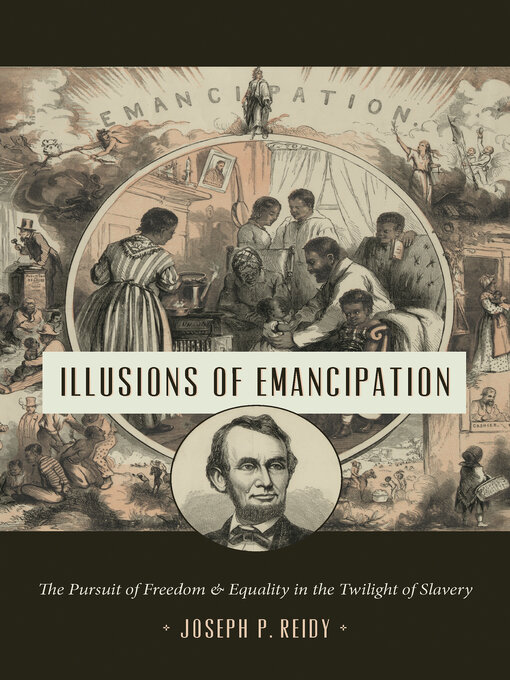Illusions of Emancipation
The Pursuit of Freedom and Equality in the Twilight of Slavery
In this sweeping reappraisal of slavery's end during the Civil War era, Joseph P. Reidy employs the lenses of time, space, and individuals' sense of personal and social belonging to understand how participants and witnesses coped with drastic change, its erratic pace, and its unforeseeable consequences. Emancipation disrupted everyday habits, causing sensations of disorientation that sometimes intensified the experience of reality and sometimes muddled it. While these illusions of emancipation often mixed disappointment with hope, through periods of even intense frustration they sustained the promise that the struggle for freedom would result in victory.
-
Creators
-
Series
-
Publisher
-
Release date
January 15, 2019 -
Formats
-
Kindle Book
- ISBN: 9781469648385
-
OverDrive Read
- ISBN: 9781469648378
-
EPUB ebook
- ISBN: 9781469648378
- File size: 24753 KB
-
-
Languages
- English
-
Reviews
-
Library Journal
March 1, 2019
Reidy (From Slavery to Agrarian Capitalism in the Cotton Plantation South) draws on the massive set of documents related to emancipation, black soldiering, Reconstruction, and related issues in the National Archives to bring us into the intimate worlds of people working out the meanings of "freedom" during the Civil War era. The author's insightful study of the many complex, contradictory, and contentious ideas about and engagements with fighting for or against black freedom shows that experience counted more than ideology, practice more than promise, in determining the scope and scale of equality. By his reckoning, blacks drove and thus in critical ways defined the issues through such actions as throwing off bondage, fighting for the Union, creating their own institutions, and working to gain property. One conclusion that comes from Reidy's telling and compelling accounts is the persistence black Americans used to claim and stake out freedom, however incomplete, on their terms. VERDICT Reidy's important book shows that the movement toward freedom was neither linear nor inevitable but was and must be constant. In that, he speaks to not only history but our own day.--Randall M. Miller, St. Joseph's Univ., Philadelphia
Copyright 2019 Library Journal, LLC Used with permission.
-
Formats
- Kindle Book
- OverDrive Read
- EPUB ebook
subjects
Languages
- English
Loading
Why is availability limited?
×Availability can change throughout the month based on the library's budget. You can still place a hold on the title, and your hold will be automatically filled as soon as the title is available again.
The Kindle Book format for this title is not supported on:
×Read-along ebook
×The OverDrive Read format of this ebook has professional narration that plays while you read in your browser. Learn more here.

